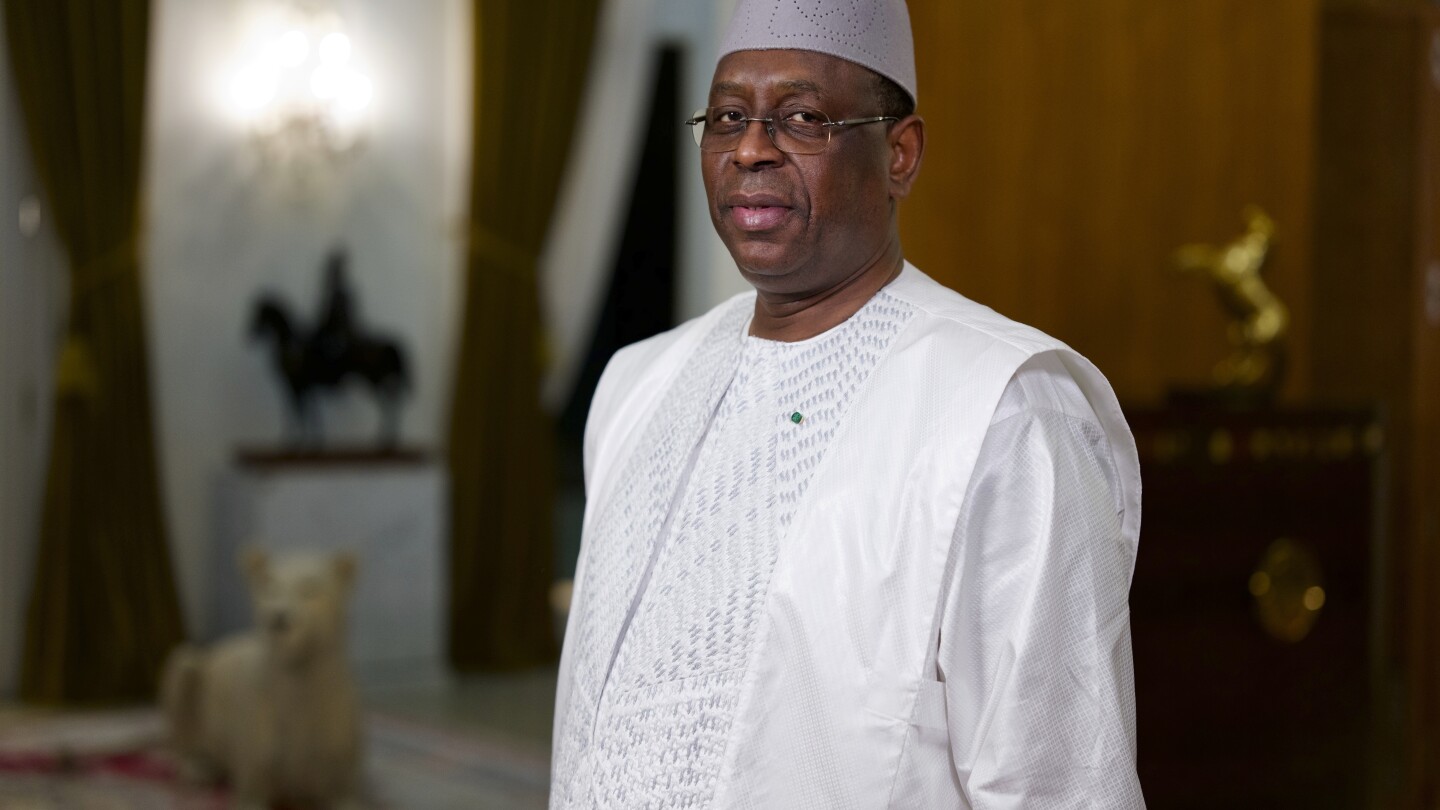DAKAR, Senegal (AP) — Senegal’s President Macky Sall said Thursday that he will end his term in April as expected, but he didn’t give a new date for the presidential election originally scheduled for Sunday.
Sall, who is wrapping up two terms in office and who has said he wouldn’t run again, postponed the election for 10 months citing unresolved disputes over who could run. But his move was struck down by Senegal’s Constitutional Court as illegal.
Speaking to journalists Thursday on live television, Sall said he would end his term as scheduled on April 2. However, it was unclear if a new president could be elected before then.
The Constitutional Court ordered the government to set a new election date as soon as possible, but Sall’s government still hasn’t set the date.
Sall said Thursday that he would hold talks next week with political leaders, and afterwards a timeline for elections and what will happen after his mandate ends will become clearer.
“It is clear that the country can’t remain without a president. The dialogue will determine what happens next and I hope that after this dialogue there will be a consensus,” he said.
Senegal has been seen as one of West Africa’s most stable democracies, but disputes over the election have plunged the country into a political crisis that has sparked deadly protests. At least three people have been killed by security forces and dozens injured.
Opposition groups are keeping pressure on Sall to hold elections quickly, planning protests throughout the weekend.
Sall has been accused of trying to hold onto power, something the president has denied.
Despite a lack of clarity on a new date, some Senegalese experts said Sall’s words Thursday showed his willingness to respect the Constitutional Council’s decision.
“I’m very pleased with this interview, which clarifies President Macky Sall’s intentions and desire to respect the Constitution and pursue his policy of appeasement and national reconciliation,” said Alioune Tine, founder of Afrikajom Center, a West African think tank.
“If a new president isn’t chosen by the time Sall leaves office, the Constitutional Council will declare a power vacuum and the president of the national assembly will set a date,” Tine said.

